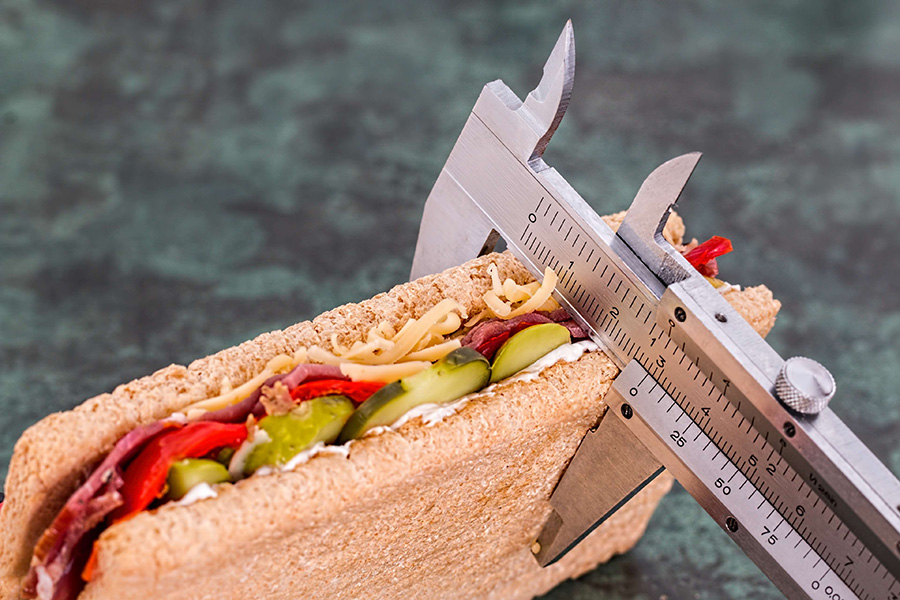Dieting may be the most confusing thing in the world of health and fitness. Looking for different diets that actually work can be hard as well. Everyone says that working out regularly and following a good diet will easily help you reach your goal weight. But what is a good diet?
In our quest to find the best diet for quick weight loss, we are eager to listen to and attempt (and fail at?) every new fad diet that comes our way. Yet more often than not, the results are less than satisfactory. Following the same pattern, we jump on board with the next diet trend that comes our way.
To help you sort through the fad diets and find the ones that will help you lose weight while also improving your health, we’ve come up with a list of diets that actually work. These may require more patience than most fad diets, but the results of these diets will be long-lasting.
1. Mediterranean Diet
If there’s one diet that will almost always work without any major side effects, it is the Mediterranean Diet. Inspired by the dietary habits of the Mediterranean (any surprises there?), this diet promotes the consumption of fresh, non-processed foods. This includes vegetables, fruits, fish, chicken, whole grains, legumes. Dairy products (cheese, yogurt, whole milk), and extra virgin olive oil – are basically the fruits that are readily available in the Mediterranean countries. The consumption of red wine is also allowed in this diet but in moderate amounts. However, you have to steer clear of processed foods, saturated fat, red meat, and too much salt.
Following this diet is guaranteed to help you shed a few pounds. This is most especially if you had very unhealthy eating habits before. Since you cut out almost all unhealthy and fattening ingredients from your grocery list, even if you end up overeating sometimes, it won’t affect your progress.
It allows you to eat a wide variety of food, so you won’t get bored with tasteless diet food either. The majority of the foods that are encouraged to consume in this diet are also associated with preventing diabetes, high blood pressure, heart disease, and obesity. Aside from being a little expensive to maintain, the Mediterranean Diet has no side effects.

2. 5:2 Diet or Intermittent Fasting
This kind of diet seems like a clear case of a fad diet on first look. But it’s also a diet that you shouldn’t knock until you’ve tried. The rules are pretty simple: For five days a week, you eat normally within your required daily intake of calories, but on two non-consecutive days, restrict your calorie intake to 500 and 600 calories for women and men respectively. The extremely low allotment of calories on diet days has led to some people classifying it as a fad diet.
There is growing evidence that supports the health benefits of the 5:2 diet. Technically speaking, this diet causes similar weight loss when compared to traditional calorie restriction. However, it is believed that the 5:2 diet is superior when it comes to maintaining muscle mass as compared to daily calorie restriction. It is also easier to maintain as it does not restrict any specific foods or food groups, and you’re allowed to eat normally on most days.
Research suggests that alternate-day fasting doesn’t cause excessive eating on the non-fast day because it causes the release of peptide YY (PYY) – a hormone that makes you feel full and helps you eat less. This diet also helps improve metabolic rate, blood pressure, and cholesterol levels. However, you may experience some levels of weakness on fast days, especially during your early days on this diet. This goes away after a while. If you work out, plan to do it on your non-fast days.
3. Paleo Diet
This diet actually works. It follows the belief that modern food has evolved much faster than the human body, and this is the cause of most health problems, illnesses, and obesity we are facing today. To help solve this issue, it promotes the consumption of foods that early Paleolithic humans might have eaten. Food such as grass-fed meats, seafood, fresh vegetables and fruits, eggs, seeds, nuts, and healthy oils (such as olive, coconut, avocado, and walnut) can be consumed readily. Dairy, potatoes, cereal grains, legumes (including peanuts), refined vegetable oils, refined sugar, salt, and all processed foods are prohibited on this diet.
Following this diet will automatically result in a cleaner and balanced diet that contains fewer calories. Since it is high in protein, it helps you feel fuller for longer. Therefore, it reduces the risk of overeating. It helps you lose weight – especially the stubborn fat around the abdominal area – and promotes overall health, including lowering blood pressure, blood sugar, insulin, and cholesterol. The diet lacks certain nutrients, such as calcium and vitamin D. So it is crucial to supplement these.

4. Whole 30
If you’re looking for a full reset of your diet, Whole 30 is the way to go. This diet focuses on consuming whole, unprocessed foods for a full 30-day window. It encourages you to cut out multiple food groups, including grains, legumes, added sugar, and alcohol, and emphasize eating real food without processed ingredients. A good way to know that you’re doing this diet right is by adding a variety of colors to your plate. This would mean that you’re getting a variety of nutrition.
This is one of the flexible diets that actually work. It allows you to consume food according to your preference and goals – as long as you don’t add any processed ingredients to your food. You can consume vegetables, fruits, meat, fish, eggs, nuts, and fat. It helps optimize health, lowers the risk of disease, and helps you lose weight. It is a much healthier way of eating as compared to diets that require you to restrict whole groups of food.
While trying to find diets that actually work, always pick one that you can stick to in the long run. Balanced eating is a way of life. If you are trying to find a quick way to lose weight so that you can go back to your unhealthy eating habits as soon as you shed some pounds, you’ll end up regaining the weight as soon as you stop. Instead, try to focus on eating healthy, and it’ll be much easier to reduce and maintain your weight.

